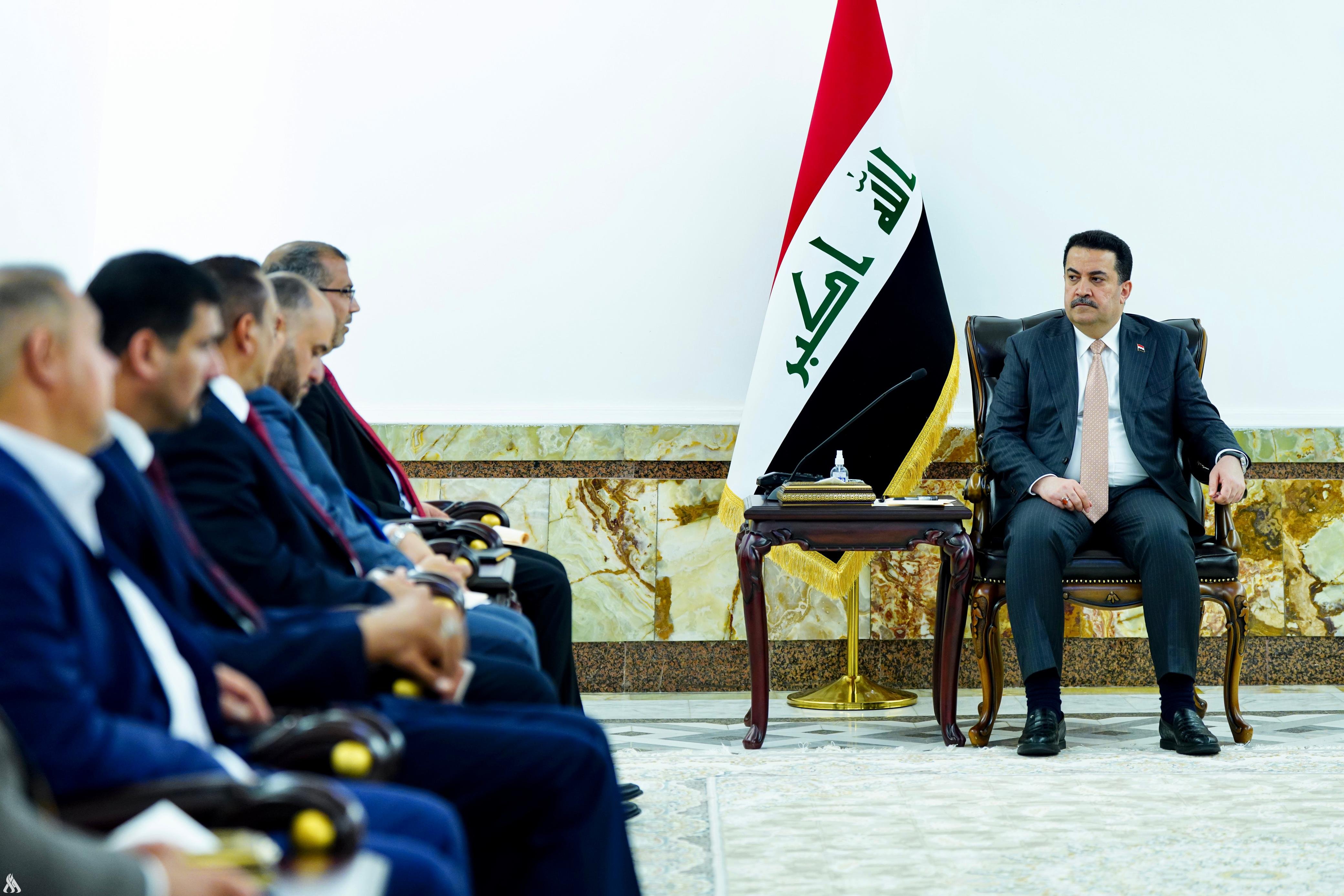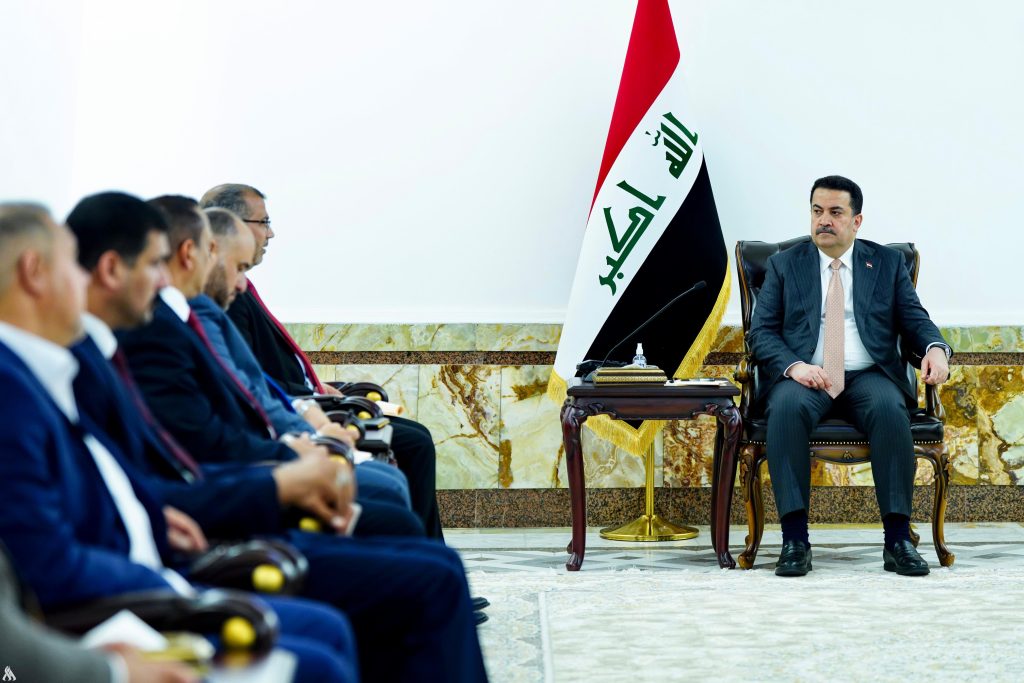
Baghdad – IA
Prime Minister Muhammad Shiaa Al-Sudani confirmed today, Monday, the imminent launch of the projects he promised in Muthanna.
To receive more news, subscribe to our channel on Telegram
The Prime Minister’s Media Office stated in a statement, received by the Iraqi News Agency (INA), that “Prime Minister Muhammad Shia al-Sudani received the Governor of Muthanna Muhannad al-Attabi, the Chairman of the Provincial Council Ahmed Mohsen Driul, the two deputy governors, and members of the Provincial Council.”
The statement added, “The Sudanese congratulated the advent of the month of Ramadan, and also congratulated the attendees for winning the trust of the people of the governorate,” stressing, “the importance of the council and the governor forming one team to complete the projects that the citizen is waiting for.”
The Prime Minister directed, “to establish a mini-service effort in each governorate,” stressing, “He directed the central service effort to focus on the governorates of Muthanna, Babil, and Diwaniyah, because they are the weakest in terms of infrastructure, in addition to being careful not to delay the launch of financial allocations to the governorates,” as he announced. “The projects he promised in Muthanna, especially hospitals, will soon be launched.”
Al-Sudani explained, “There are positive indicators about the nature of investment work in Muthanna, which provides 52,000 job opportunities,” stressing, “the importance of supporting the private sector in the governorate, because it provides job opportunities for citizens, as the government continues its efforts to provide alternatives for graduates and the unemployed in the sectors.” Industry and agriculture.
He stressed “the necessity of rationalizing the use of groundwater in Muthanna and elsewhere in order to preserve this wealth,” noting that “the government has contracted for 12,000 modern irrigation systems, in addition to continuing to prepare a study in cooperation with the Central Bank to launch a comprehensive initiative in agriculture, industry, and housing.”


